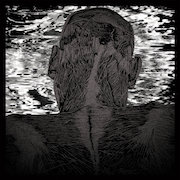In early 2015, film director Rodney Asker released the documentary feature The Nightmare, which focused on the stories of eight people who suffer from sleep paralysis. A little known and studied phenomenon, sufferers when they’re about to fall asleep or wake up would find themselves unable to move, speak, or even react to the world around them. As each person told their story, they described how they would experience intense physical sensations as well as the most horrifying of hallucinations – shadowy “slendermen” in hats, alien like beings with elongated fingers, demons with red eyes, metal claws that would attack them (and they would feel the pain), and tunnels with lights at their end. Asker would note the many similarities between the participant’s stories with representations of demons in the folklore of many cultures as well as films such as A Nightmare on Elm Street, Jacobs Ladder, and Communion.
Asher Levitas, a member of the eldritch electronic collective Old Apparatus, is a person who also suffers from sleep paralysis, and with the release of his debut album Lit Harness on Planet Mu, he seeks to provide the listener with an aural journey into his experiences with the condition. And on listening to the album, it can also be said that its provides a de facto soundtrack to The Nightmare. The words that many of the participants in the film use to describe their experiences – “static”, “pressure”, “intense”, “dark”, “overwhelming”, “vibrations”, “transcendent” – are also words that could be used to describe the aesthetic and form that Levitas creates in Lit Harness. The cover art to the album for example is of the back of a faceless shadowhead that’s made up of strained sinews and fractured synapses. The track ‘In The Eyes’ meanwhile, with its foreboding choir voices, clinging bass, high pitched squeals and crunching screams, very much captures the experience of one woman in the film who describes hearing various screaming voices and other audio hallucinations.
Lit Harness’s opening track, ‘Withdrawn’, sets the stall out in articulating the overwhelming and high restlessness that accompanies such experiences. Punishing sub bass distortions are speckled with the sounds of various metallic mechanisms and cybernetic insect sounds that whizz and strafe across and through you head. Indeed, the alien nature of this track and the following salvo ‘In The Eyes’ seeks to plunge you into unknown depths, a dark fantasy of complete unreality. All you can do is to swallow your fear, and just be along for the ride.
But after this beginning, Levitas then pulls you out of the abyss and carries you along the clouds as tracks such as ‘Waiting by an Open Door’ and ‘Strongest Bonds’ open up to a soothing immanence, an all-encompassing ambient expanse that leaves you floating on waves of distorted colours and wisps of disintegrating humanity. Playing this loud, it feels warm and welcoming, like being in an amniotic sea. By the time you reach ‘Blessed Mother’, you’re ready to surrender to the repeating vocals provided by Marina Elderton and the barrage of heavy pulsing drones. There is a faintly sinister industrial edge to the closing arc of Lit Harness as the plunging drums, plangent vocals samples, and fizzing static on ‘Anticipating Violence’ evoke a sense of sadness and desolation.
With Lit Harness, Levitas has made music that, while inducing an idea of a specific, extreme condition to the general listener, also contains elements and moods of uneasiness that will be well known to many people. Like Visionist’s Safe in 2015, which reflects the symptoms and experience of panic attacks, the main theme of Lit Harness concerns itself about the loss of control, of anxiety and a feeling of helplessness in struggling with being yanked from reality and into a world of dissonance beyond your comfort zone.


